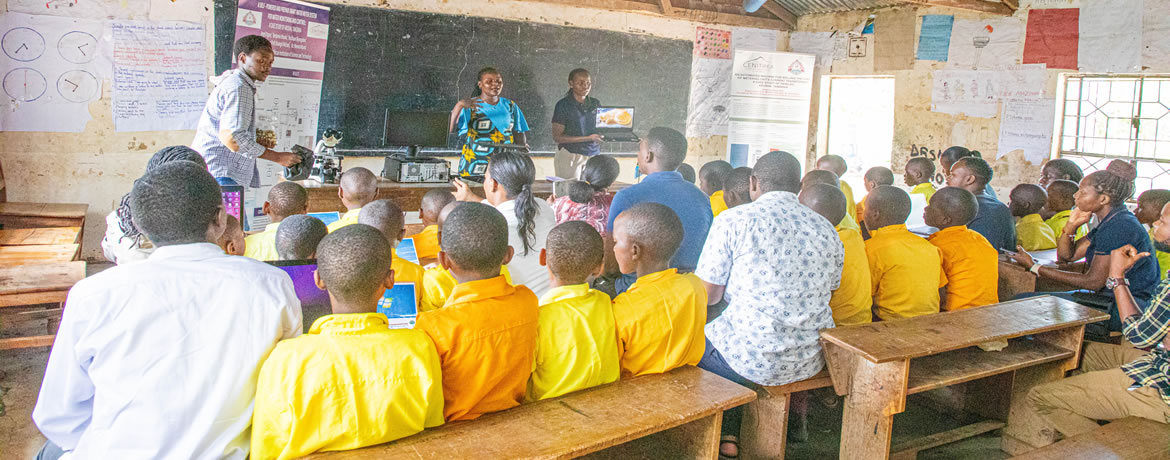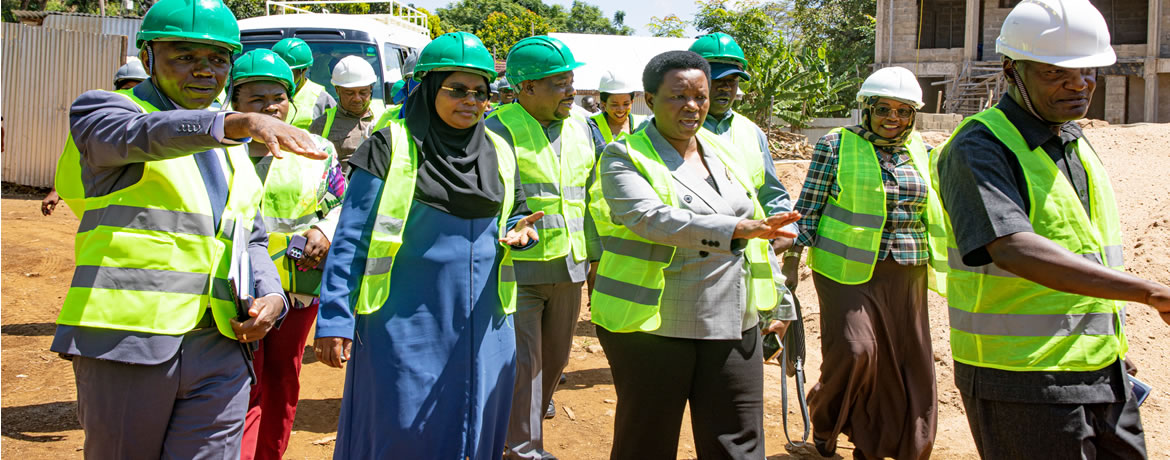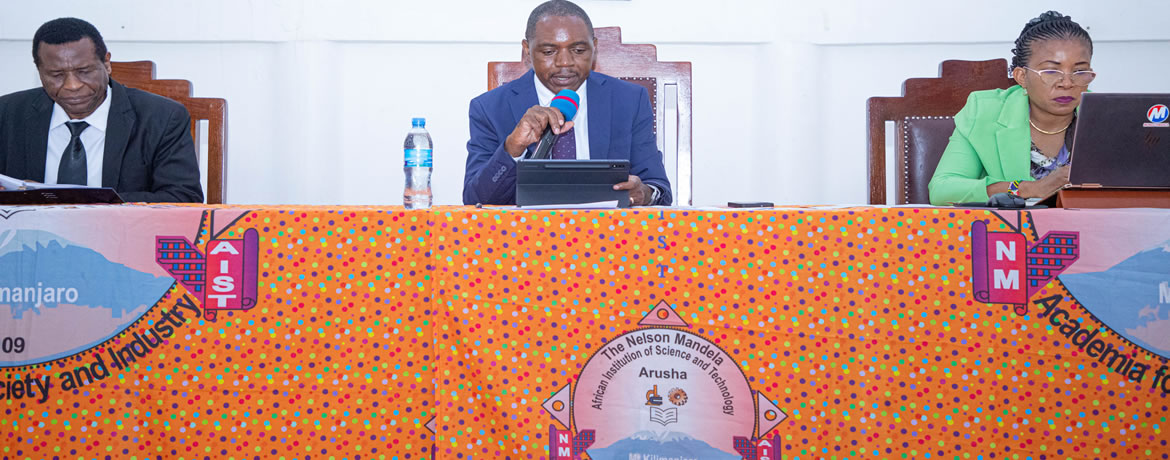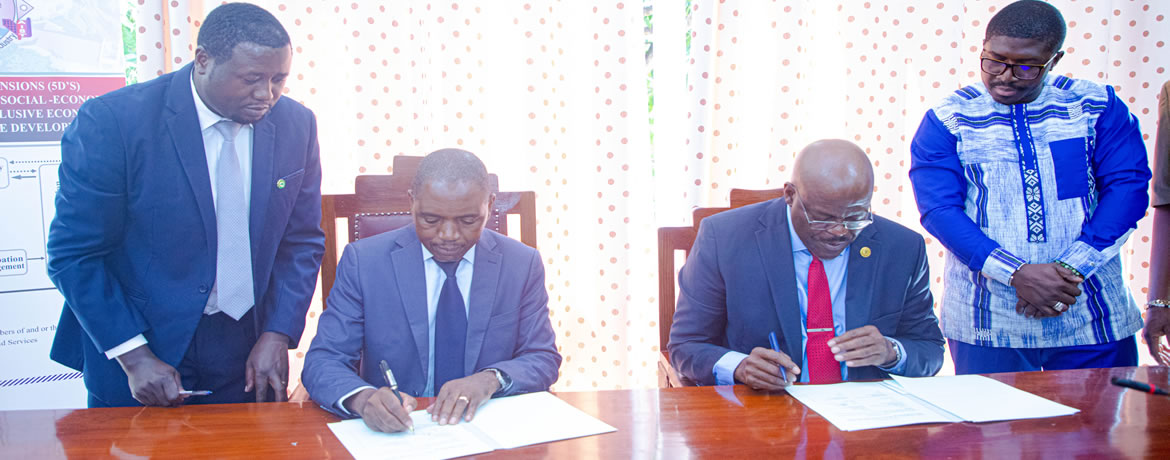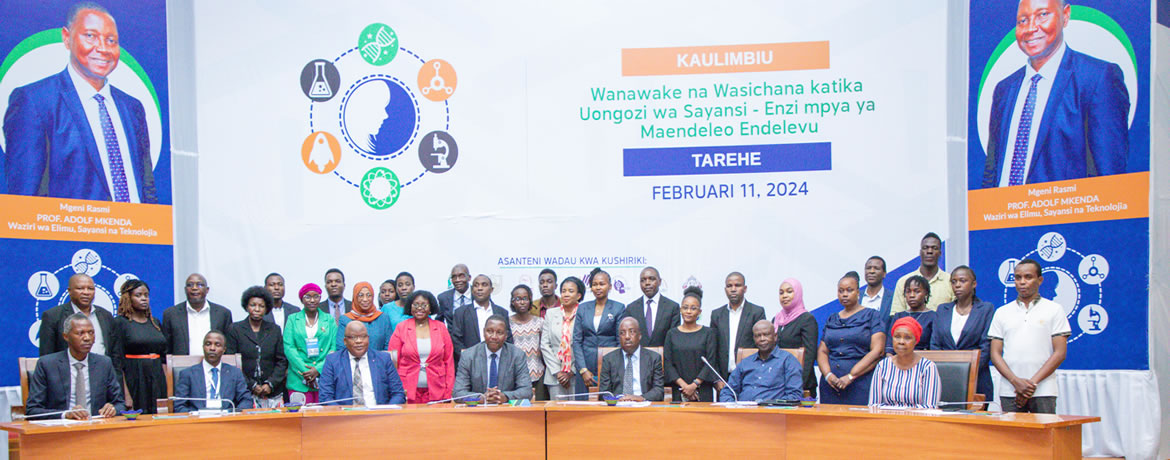The Nelson Mandela African Institution of Science and Technology, through its Centre of Excellence for ICT East Africa (CENIT@EA), has actively engaged in outreach efforts to promote the significance of science and mathematics education in two primary schools: Nganana and Nambala in Arumeru District Council, Arusha.
During a recent visit on March 21, 2024, Dr. Judith Leo, a Lecturer and Academic and Industrial Linkage Coordinator (EMoS), along with Master's Degree students specializing in Mobile Embedded Systems (EMoS), interacted with the students. They emphasized that while science and mathematics may seem daunting, success in these subjects is achievable through personal effort and a genuine interest in the topics.
Moreover, the Master's Degree students provided hands-on demonstrations of various scientific equipment and computer applications. They aimed to showcase how these tools can be utilized to identify and address societal challenges effectively.
Seth Odwar, a Master's Degree student from Kenya, encouraged the students to prioritize mathematics, highlighting its relevance across various fields of study. He also emphasized the crucial role of science in tackling contemporary societal issues.
Representing her peers, Jackline Mushi expressed gratitude to the Nelson Mandela African Institution of Science and Technology for empowering them with practical skills and knowledge. She specifically acknowledged the institution's efforts in enhancing their proficiency with scientific equipment and computer technologies.
The Nelson Mandela African Institution of Science and Technology operates within a framework of five business models, one of which prioritizes outreach and community engagement.
The Parliamentary Standing Committee on Education, Culture, and Sports has mandated the Government to allocate the entire planned budget for the completion of the student hostel project at the Nelson Mandela African Institute of Science and Technology.
Chairman of the Committee, Hon. Husna Juma Sekiboko, made this announcement on March 12, 2024, during the committee's inspection of the construction project. The dormitory, estimated at 16.28 billion, is currently at 49 percent completion in its first phase, costing 5.8 billion.
"The project's implementation is commendable, with the government providing 1 billion funds as planned in the 2023/24 financial year. We believe that upon completion, this facility will cater to both local and international students, considering the institute's global stature," said Hon. Sekiboko.
Deputy Minister of Education, Science, and Technology, Hon. Omary Kipanga, stated that the Ministry would prioritize the allocation of sufficient funds in the 2024/25 budget to fulfill the committee's directive. The first phase, when completed, is designed to accommodate approximately 500 students, with special provisions for nursing mothers.
"This project aims to offer opportunities for nursing mothers pursuing science courses at the master's and doctoral levels. Special rooms will be provided to facilitate their studies with their families," added Hon. Omary Kipanga.
In response, Prof. Maulilio Kipanyula, the Vice Chancellor of the Institute, expressed gratitude to the government for its continuous financial support, facilitating the ongoing implementation of the project scheduled for completion in the 2024/25 financial year.
The student hostel project spans five years, divided into three phases, each costing approximately 5.8 billion. The overarching goal is to create opportunities for nursing mothers to pursue science education alongside their families.
The experts at the Nelson Mandela African Institution of Science and Technology are commended and urged to enhance their efforts in drafting comprehensive projects, taking into consideration funding aspects to boost income and increase student admissions to the institution.
This directive was issued by Vice Chancellor Prof. Maulilio Kipanyula during a staff meeting on February 19, 2024, held in the conference hall of the institution's Tengeru Campus in Arusha.
"Management is actively fostering an enabling environment for teams of professionals to efficiently and professionally write projects, contributing to the institution's development" stated Prof. Kipanyula.
He further implored lecturers to provide project writing training for Master's and PhD students, enabling them to secure small projects that ensure continuity even after completing their studies.
During the session, Prof. Kipanyula shared information about the Institute's involvement in various national events, such as the International Day of Women and Girls in Science and the Fourth e-Government Annual Conference. Scientists from the institute actively participated, highlighting the institution's significant contributions to the field of Science and Technology.
Additionally, in efforts to enhance capacity and educational development among employees, 27 lecturers have been awarded scholarships to pursue doctoral degrees through the Economic Reforms for Higher Education (HEET Project).
Deputy Vice-Chancellor of Planning, Finance, and Administration, Prof. Suzana Augustino, encouraged employees to collaborate in making the institution a safe and better workplace, aligning with laws, regulations, and procedures.
The Nelson Mandela African Institution of Science and Technology (NM-AIST) and the African Postal Union (PAPU) have formalized a memorandum of understanding, solidifying their commitment to enhanced collaboration in the realm of digital advancements. Their focus is on innovative solutions that will revolutionize the postal sector by integrating digital systems, aligning with the evolving demands of the market.
The signing ceremony took place in Arusha on March 7, 2024, at NM-AIST Tengeru Campus where Professor Maulilio Kipanyula, the Vice-Chancellor of NM-AIST, expressed optimism about the partnership's potential to yield groundbreaking digital research outcomes.
Professor Kipanyula highlighted the synergy between the institute's research capabilities and postal services, foreseeing strengthened research and innovation in technology that will bolster postal operations across 45 countries.
"In the era of science and technology, E-commerce has become integral to many businesses. By combining this with research, we can significantly boost economic growth," emphasized Professor Maulilio Kipanyula.
He underscored NM-AIST's expertise in ICT, with the Nelson Mandela School of Computational, Communication Science, and Engineering (CoCSE) specializing in ICT issues, including artificial intelligence and data science. The institute's ICT centre plays a crucial role in processing vast amounts of data simultaneously, supporting economic development and technological advancements in the research sector.
Dr. Sifundo Chief Moyo, the Secretary-General of the African Postal Union (PAPU), commended the partnership as a model for innovation and increased technological research in the provision of postal services to African countries.
"To foster growth in the postal sector, we must actively promote research in science and technology. This ensures that the services offered not only contribute to economic growth in African countries but also raise awareness among users about the quality of business and economic development," stated Dr. Moyo.
The Nelson Mandela African Institution of Science and Technology is actively fostering enthusiasm among girls and women to embrace and pursue studies in Science, Mathematics, Technology, Engineering, and Innovation, with the aim of increasing expertise in these fields within the country.
This statement was made on February 11, 2024, in Arusha by Prof. Suzana Augustino, the Deputy Vice-Chancellor for Planning, Finance, and Administration, during the celebration of International Day of Women and Girls in Science held at the AICC International Conference Hall in Arusha.
"In our implementation efforts, apart from offering Master's and PhD training, we also provide incentives to primary and secondary students to engage in the study of science, mathematics, technology, engineering, and innovation through STEMi clubs, collaborating closely with our researchers," emphasized Prof. Suzana Augustino.
She further highlighted the institution's collaboration with primary and secondary schools, providing expertise to teach students practical applications across various fields.
"We are involved in a school where children learn about renewable energy, and our institution provides expertise for hands-on experience. By doing this, we aim to cultivate a love for science studies in children, contributing to the government's mission of increasing the number and participation of women and girls in science," explained Prof. Suzana Augustino.
Prof. Neema Kassim, a lecturer at the institution, urged the community to provide children with opportunities to engage in practical lessons, fostering a love for their studies through various discussions that build confidence. This year's International Day of Women and Girls in Science is guided by the slogan "Women and Girls in the Leadership of Science, a New Era of Sustainable Development."



